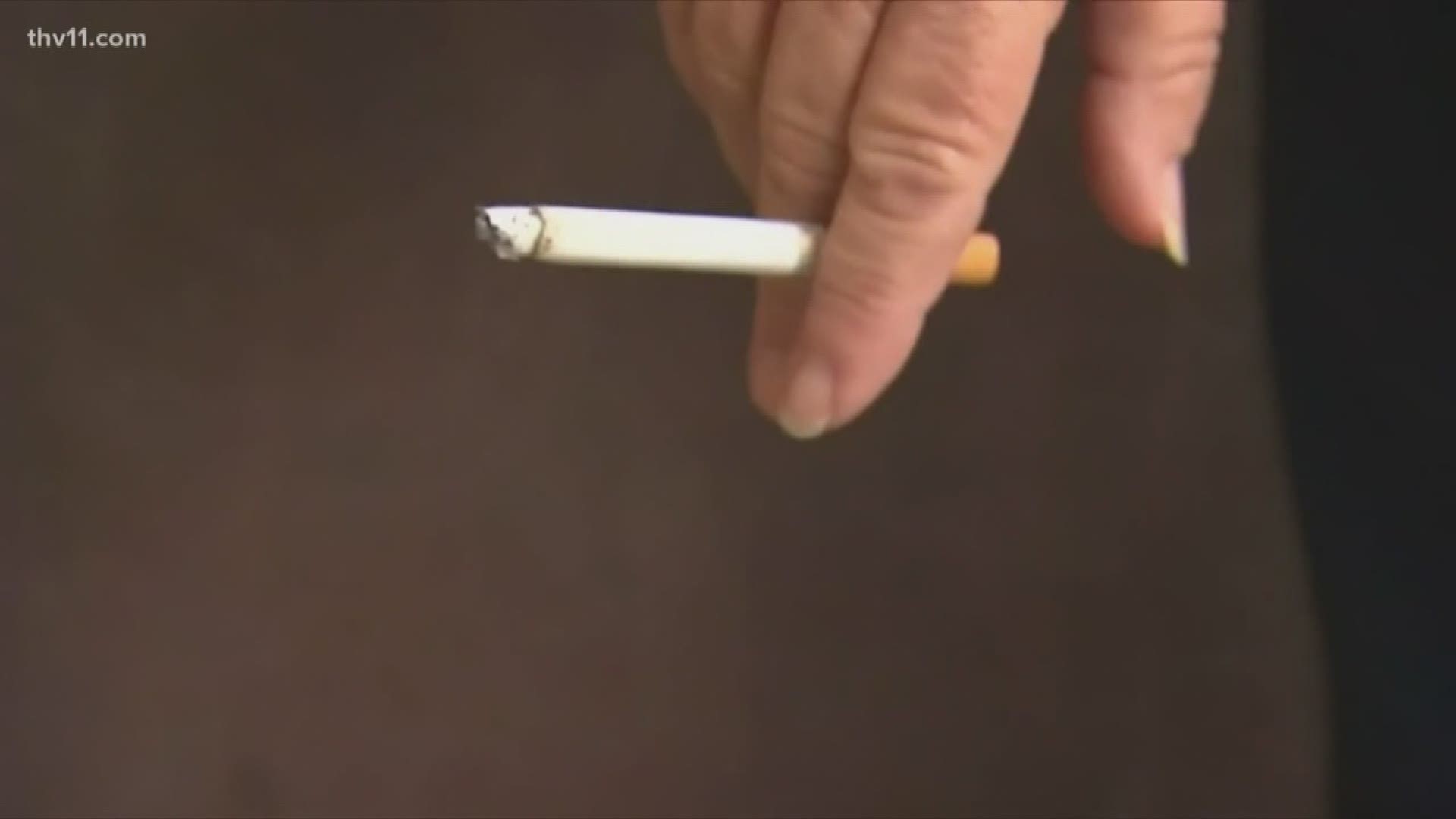LITTLE ROCK, Ark. — Arkansans rack up more than a billion dollars a year in health care bills related to smoking, but the American Lung Association says the state has a long way to go to help people quit.
Arkansas received 'F' grades in three out of five categories in the organization’s State of Tobacco Control 2020 report.
“In Arkansas, we are number one in a lot of things,” Pat Franklin said. “Number one in lung cancer.”
Franklin, a nurse practitioner at UAMS who runs a tobacco cessation program, has helped dozens of people quit smoking. Conrad Browning celebrated his “quit day” in August 2015.
“I smoked for 47 years,” Browning said Wednesday. “Forty-seven years is a long time to do anything. I got very good at it.”
He said he tried to quit more times than he could count, but finally found enough motivation while taking Franklin’s class. “I really think the hardest part was just sticking to it,” he mentioned. “And then after a while, it was a week, and then two weeks, and a month.”
Pamela Johnson and her husband quit smoking together with Franklin’s help. She had smoked since she was 14 years old and said friends only recognized her with a cigarette in her hand.
“I tried to quit on my own without any education on how to quit,” she recalled. “I quit for a year. And I didn’t know that that didn’t mean I was out of danger.” I didn’t attend any class; I didn’t educate myself at the point when I quit. So, I picked up one cigarette and that led to 20.”
She quit tobacco in 2017 and celebrated the accomplishment by framing their certificates of completion.
“It’s in my exercise room,” she said, “where I can get on my treadmill and run now, where I couldn’t do those things when I smoked. It’s right where I can see it every time I come in the room. And it makes me proud.”
The American Lung Association reported that smokers had a harder time quitting in Arkansas than if they had lived almost anywhere else in the country. It gave Arkansas F’s for tobacco prevention and control program funding, tobacco taxes, and access to cessation services. It gave the state C’s for smoke-free air and the minimum age to purchase tobacco products.
“It’s challenging in Arkansas, because we are all spread out and there is not a lot of resources,” Franklin said. She added that the Arkansas Department of Health has made strides in delivering resources to rural areas through its Be Well Arkansas initiative.
UAMS runs the only group program for people to learn how to quit. Other health care providers partnered with it in the past and offered classes, but Franklin said there were not enough participants to sustain multiple programs.
“When we had seven-week classes, it was hard for people to come every single time,” she explained, “so we’ve decreased them now down to four weeks, and I would say most people are 100% attendance. It’s great.”
Hannah Branton is UAMS’ first full-time tobacco cessation interventionist. She works with physicians to educate patients who want to quit tobacco or whose health is impacted by smoking.
“They have—especially the doctors I work with—they have so much that they’re trying to address with that patient in one appointment,” Branton stated. “A patient comes in and they’ve got 10 different things that they want to talk to this doctor about. And even though they all may be related to smoking, it’s hard and it’s time-consuming, which is why I was brought in, to talk in depth with your patients about smoking.
“I think that our doctors do a good job of bringing it up and saying, ‘you know, if you would quit smoking, it can really help this whole process.’ But, as far as the time, they have very little time to do this.”
Branton said that while some smokers can quit successfully on their own, there is a need for more group classes and plans that add a measure of accountability.
“People, even just working with a counselor like myself one on one, you’re 60% more likely to be able to quit long-term,” she said.
Branton and Franklin both said Arkansas is taking steps to make it easier to quit and harder to get addicted in the first place. The American Lung Association report highlighted a law passed in 2019 to provide Medicaid coverage for all seven FDA-approved tobacco cessation medications, and a law that increased the tobacco sale age to 21. But, it claimed that 31.4% of adults use tobacco products and 26.3% of high school students use tobacco.
The report states that nearly 5,800 deaths a year in the state are attributable to tobacco, and Arkansans spend $1.2 billion per year in health care costs related to smoking.
“I think that the state of Arkansas is doing what it can, and they’re doing a lot more with some programs right now,” Browning said. “But eventually, it’s gonna be up to that person to call those numbers that are given to quit smoking.”
The smoking cessation classes at UAMS are free and last for four weeks. For more information, call 501-944-5934.

